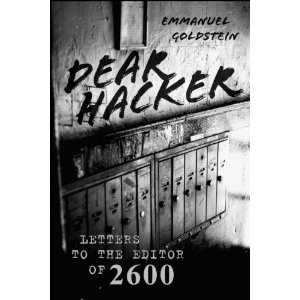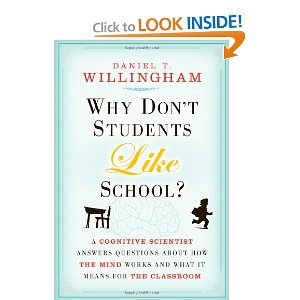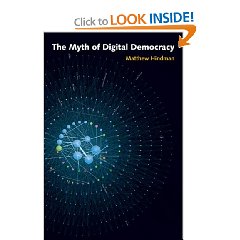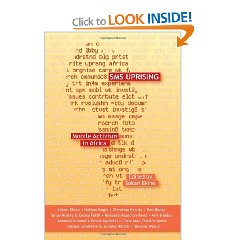
![]() Half of the Priceless Set
Half of the Priceless Set
July 16, 2010
Emmanuel Goldstein
I've been browsing this marvelous collection–559 pages–all afternoon, and the afternoon has been broken up frequently with outrageous laughter and occasional gasps of disbelief. This book, organized as it is, is vastly more important and easier to read than the original 2600 Magazine letters that I have been glancing at since first helping and joining this group in 1994.
The other book, The Best of 2600: A Hacker Odyssey now reprinted in a more expensive The Best of 2600, Collector's Edition: A Hacker Odyssey is absolutely essential and the other half of this set.
Hats off to Wiley for having the brains to see the value, and the editorial talent to select, edit, and present so perfectly. This book, thick as it is, has exactly the right amount of white space, the selection and use of fonts is just right, and the index, while not as extensive as I would have liked, is adequate.
“Look Inside the Book” has been set in motion, in the meantime, here is the table of contents that runs from the early days in the 1980's up through today, with absolutely phenomenal selections that provide priceless insights into the mindsets of BOTH bona fide hackers AND the clueless wanna-bes.
1. Question Upon Question
2. Tales from the Retail Front
3. The Challenges of Life as a Hacker
4. Technology
5. Our Biggest Fans
6. Behind the Walls
8. A Culture of Rebels
9. Strange Ramblings
Easily half if not more of the value of the book is to be found is the witty, acerbic, funny, insightful, surprising comments of the author Emmanuel Goldstein (not his real name), who has single-handedly but with many willing volunteers created the legitimate means of enabling information sharing and sense-making among hackers, who I am often at pains to describe as being the same as astronauts and pioneers, pushing the edge of the envelope.
Continue reading “Review: Dear Hacker–Letters to the Editor of 2600”








